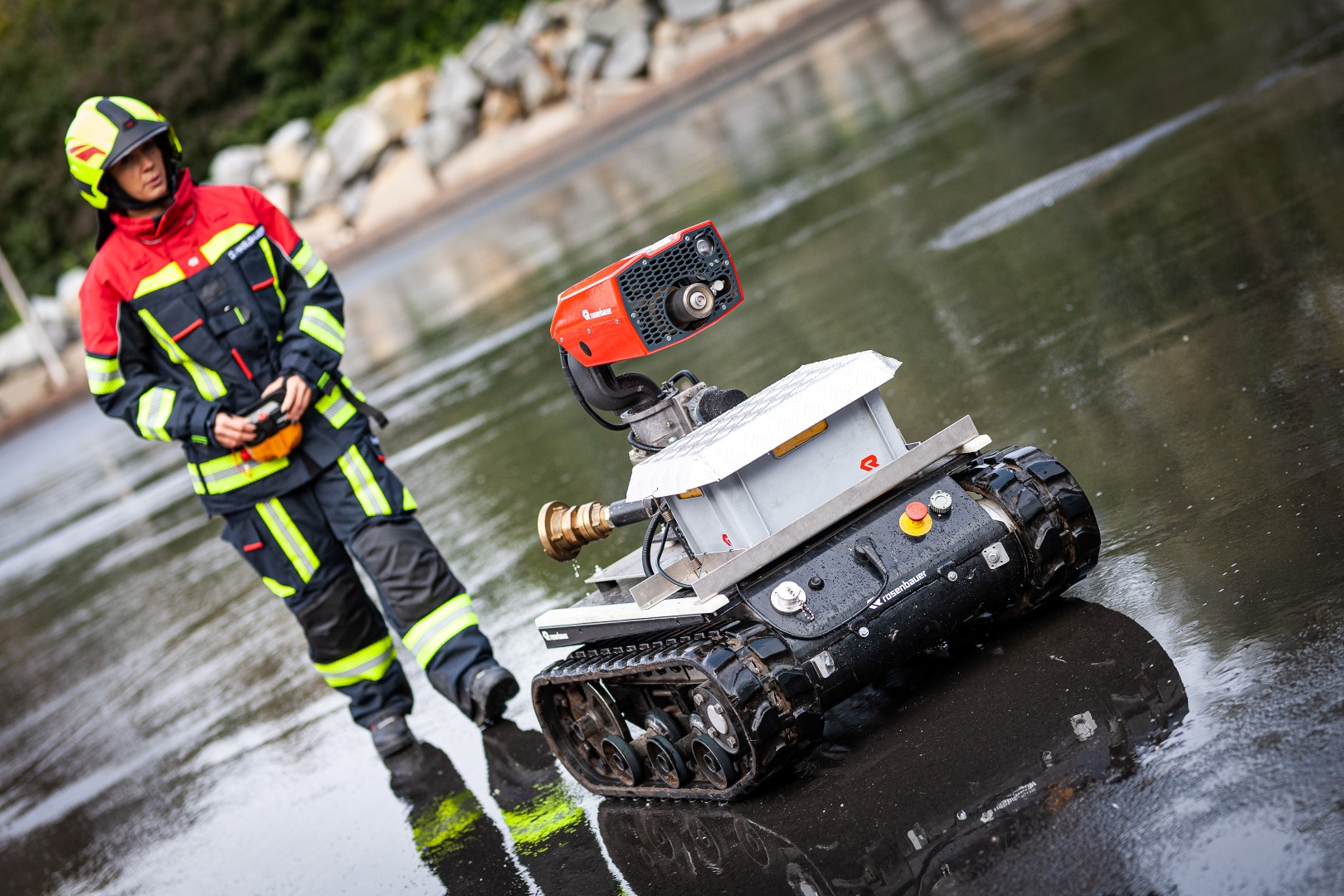The second user study was conducted in November 2023 with around 40 participants. The study took place in a simulation where the user interacted with a mobile manipulator in an indoor disaster response scenario. The evaluation focused on the impact of explanations, of interaction modalities, and on interface type (the users used both a control suitcase with integrated touchscreens and joysticks and a VR interface).
Publications at RAAD 2023
Two publications within the EASIER project were accepted as part of the 32nd International Conference on Robotics in Alpe-Adria-Danube Region (RAAD 2023). One work investigates the explainability of a localization monitor for navigation and the other one presents the first results from the first study conducted in November 20222, focusing on the impact of user pre-experience while using a VR interface.
Conduction of the first user study
The first user study was conducted in November 2022 with 39 participants (mainly psychology and software engineering students) involved. The study focused on a navigation task and investigated the impact of different explanation designs and user takeover of robotics functions on different metrics such as trust and cognitive load. The processing of the data is ongoing.
Conceptual Overview of the project
A Conceptual overview of the EASIER project was written and made available on arxiv (see publications). This overview was accepted in the SAPHRI (Shared Autonomy in Physical Human-Robot Interaction: Adaptability and Trust) workshop of ICRA 2022.
Publication at RAAD 2022
A first publication within the EASIER project was accepted as part of the 31st International Conference on Robotics in Alpe-Adria-Danube Region (RAAD 2022). The work tackles the issues of explainability and interaction in the context of motion planning.
